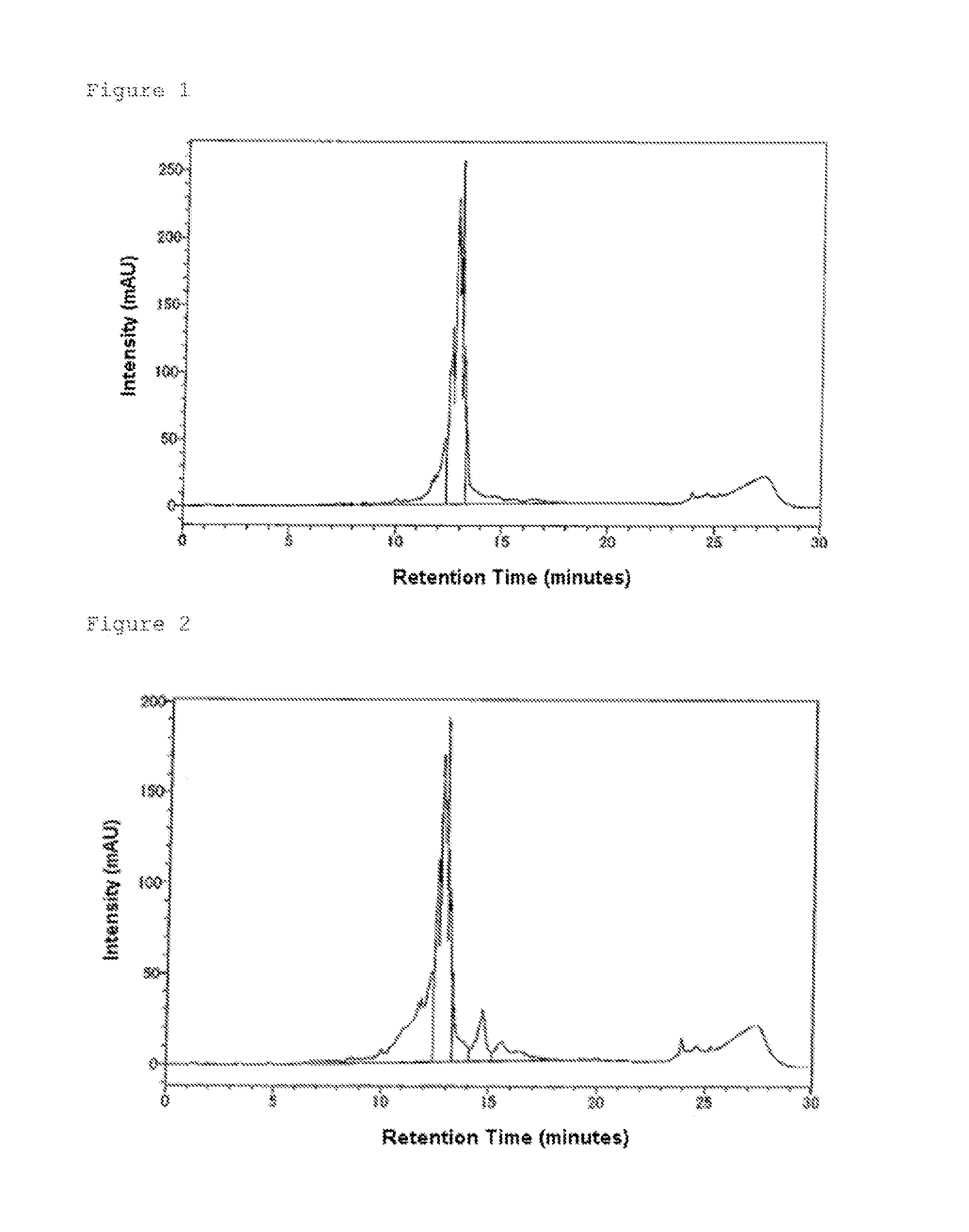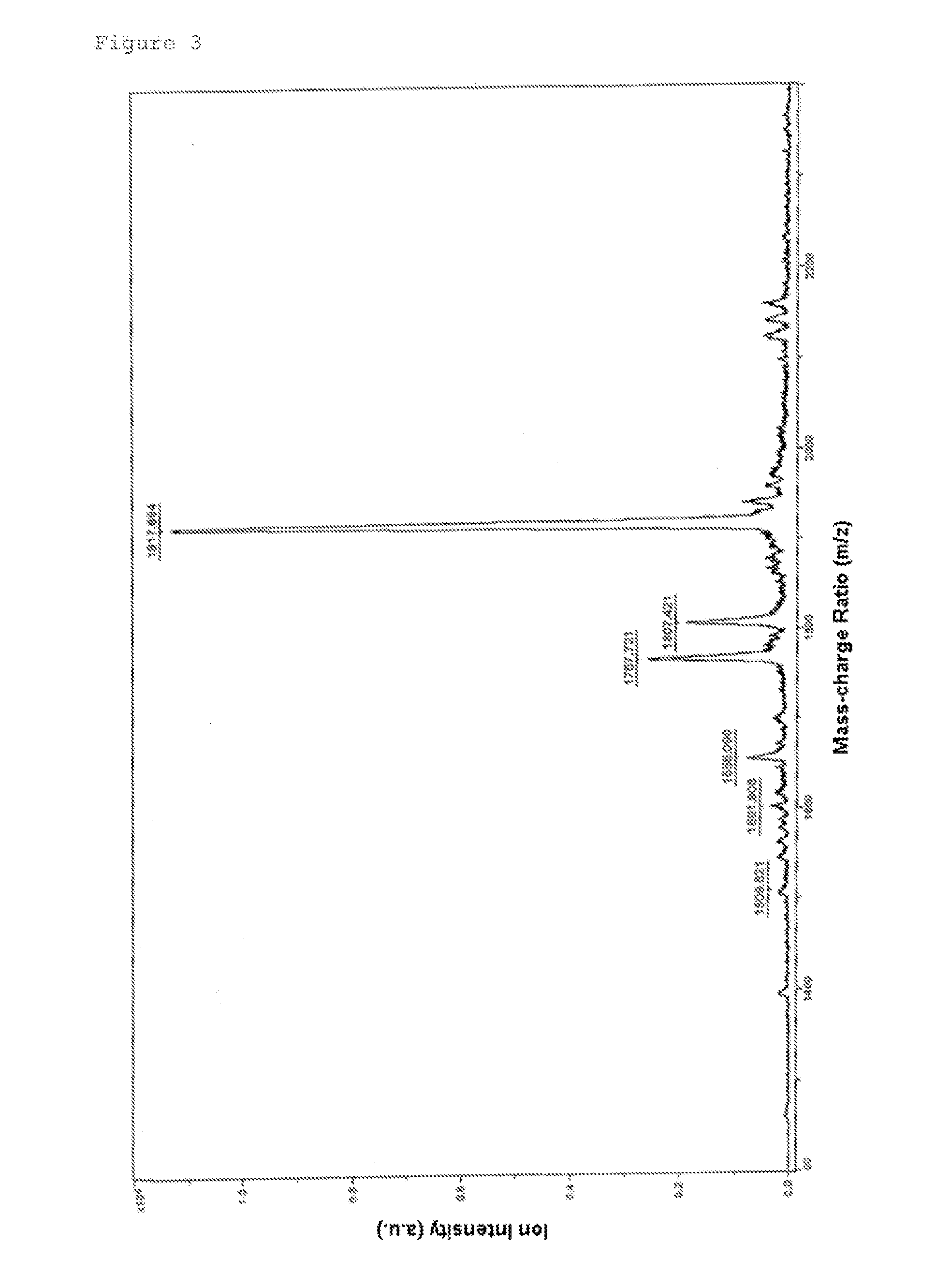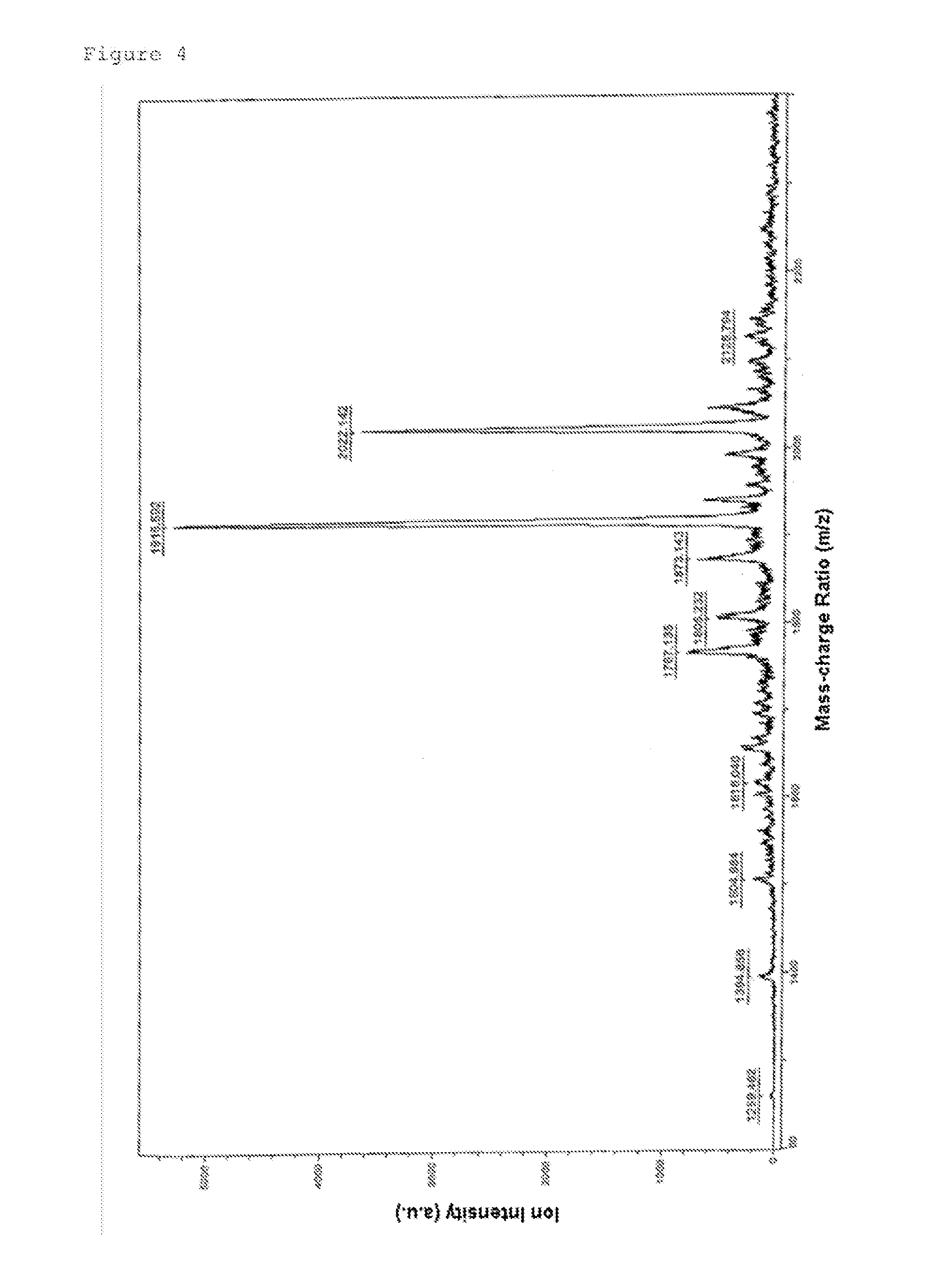Morpholino Nucleic Acid Derivatives
- Summary
- Abstract
- Description
- Claims
- Application Information
AI Technical Summary
Benefits of technology
Problems solved by technology
Method used
Image
Examples
reference example 1
N9-{(2R,6S)-6-(Hydroxymethyl)morpholin-2-yl}-N2-(phenoxyacetyl) guanine p-toluenesulfone
[0100]Step 1: Production of N2-(phenoxyacetyl)guanosine
[0101]Guanosine, 100 g, was dried at 80° C. under reduced pressure for 24 hours. After 500 mL of pyridine (anhydrous) and 500 mL of dichloromethane (anhydrous) were added thereto, 401 mL of chlorotrimethylsilane was dropwise added to the mixture under an argon atmosphere at 0° C., followed by stirring at room temperature for 3 hours. The mixture was again ice-cooled and 66.3 g of phenoxyacetyl chloride was dropwise added thereto. Under ice cooling, the mixture was stirred further for 3 hours. To the reaction solution was added 500 ml of methanol, and the mixture was stirred at room temperature overnight. The solvent was then removed by distillation under reduced pressure. To the residue was added 500 mL of methanol, and concentration under reduced pressure was performed 3 times. To the residue was added 4 L of water, and the mixture was stirr...
reference example 2
[0104]Production of 4-{[(2S,6R)-6-(4-benzamido-2-oxopyrimidin-1-yl)-4-tritylmorpholin-2-yl]methoxy}-4-oxobutanoic acid loaded onto aminomethylpolystyrene resin (manufactured by GE Healthcare, Custom Primer Support Amino 200 , 28-9229-46)
[0105]Under argon atmosphere, 0.46 g of N-{1-[(2R,6S)-6-(hydroxymethyl)-4-tritylmorpholin-2-yl]-2-oxo-1,2-dihydropyrimidin-4-yl}benzamide 0.15 g of 4-dimethylaminopyridine (4-DMAP) were suspended in 10 mL of dichloromethane, and 0.12 g of succinic anhydride was added to the suspension, followed by stirring at room temperature for 3 hours. To the reaction solution was added 1 mL of methanol, and the mixture was concentrated under reduced pressure. The residue was extracted using ethyl acetate and 0.5 M aqueous potassium dihydrogenphosphate solution. The resulting organic layer was washed sequentially with 0.5 M aqueous potassium dihydrogenphosphate solution, water and brine in the order mentioned. The resulting organic layer was dried over sodium sulf...
reference example 3
[0112]Production of 4-{[(2S,6R)-6-(4-benzamido-2-oxopyrimidin-1-yl)-4-tritylmorpholin -2-yl]methoxy}-4-oxobutanoic acid loaded onto aminomethyl polystyrene resin cross-linked with 1% DVB (Manufactured by Tokyo Chemical Industry Co., Ltd., A1543)
[0113]Under argon atmosphere, 30 g of N-{1-[(2R,6)-6-(hydroxymethyl)-4-tritylmorpholin-2-yl]-2-oxo-1,2-dihydropyrimidin-4-yl}benzamide and 9.6 g of 4-dimethylaminopyrimidine (4-DMAP) were suspended in 60 mL of dimethylformamide, and 7.86 g of succinic anhydride was added to the suspension, followed by stirring at room temperature for 2 hours. To the reaction solution was added 1 M aqueous potassium dihydrogenphosphate solution, and the mixture was extracted with ethyl acetate. The obtained organic layer was washed sequentially with 1 M aqueous potassium dihydrogenphosphahe solution, water and brine in the order mentioned. The resulting organic layer was dried over magnesium sulfate and concentrated under reduced pressure to give 34.0 g as cru...
PUM
 Login to View More
Login to View More Abstract
Description
Claims
Application Information
 Login to View More
Login to View More - R&D
- Intellectual Property
- Life Sciences
- Materials
- Tech Scout
- Unparalleled Data Quality
- Higher Quality Content
- 60% Fewer Hallucinations
Browse by: Latest US Patents, China's latest patents, Technical Efficacy Thesaurus, Application Domain, Technology Topic, Popular Technical Reports.
© 2025 PatSnap. All rights reserved.Legal|Privacy policy|Modern Slavery Act Transparency Statement|Sitemap|About US| Contact US: help@patsnap.com



